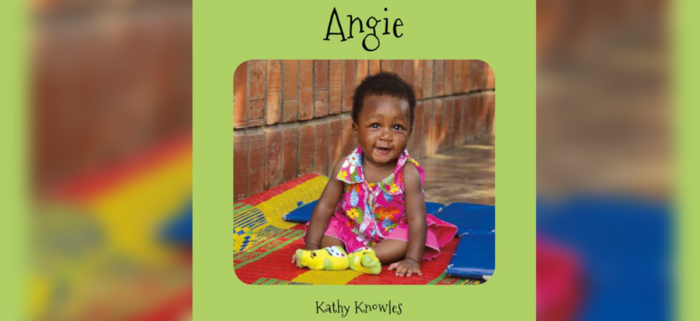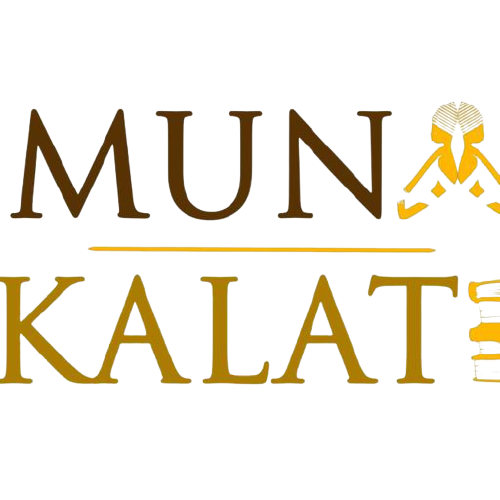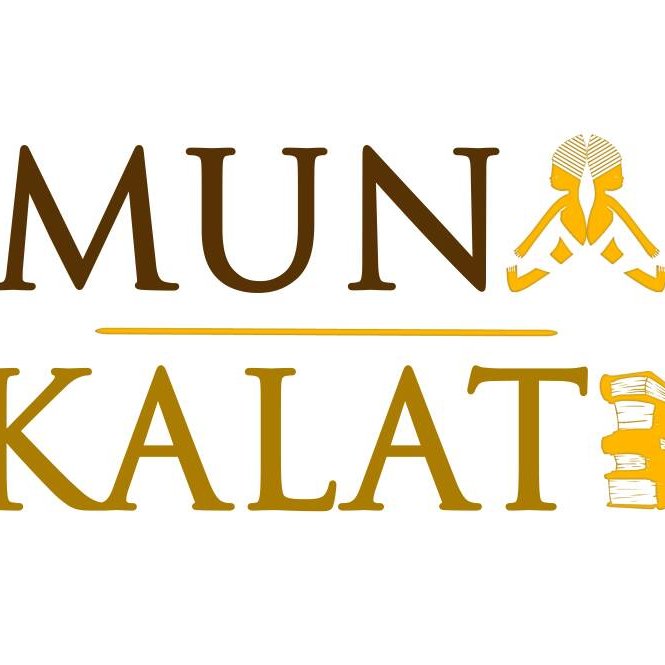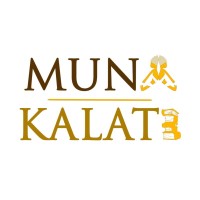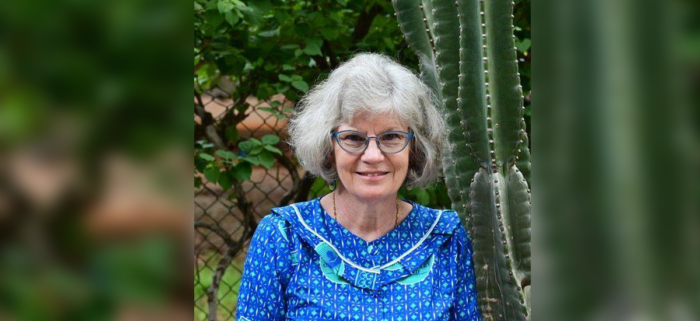What better way to celebrate the passing of World Literacy Day than to take a glimpse into the life of Kathy Knowles, an illustrious and inspiring lady who has contributed so much towards literacy in Ghana? Through the setting up of libraries and training of aspiring librarians, she has lighted the beacon of literacy in the hearts of many children and young people. We were welcomed by the serene ambiance, the flora and fauna which contributed to the natural settings of the child-friendly space, when Muna Kalati set out to interview Mrs. Kathy Knowles at the Kathy Knowles Children’s Library in Osu. It was the musical hour and the children were cheerfully and melodiously singing in tune with the resource person. We had the pleasure of meeting and interacting with Edna, a two-year-old toddler who had been introduced to books from an early age and was able to read on her own. Edna’s enjoyment of books was obvious as she carefully flipped through the pages of one book after the other. Kathy Knowles love and passion for serving literacy and the magical world of books to children shone through her eyes as we spoke with her about all she set out to do and her accomplishments. We were greatly inspired by all Mrs. Knowles had achieved from an initiative which had started with a basket of books under trees. Below is the interview with Mrs. Knowles:
Muna Kalati (M.K.): Please tell us more about yourself.
Kathy Knowles (K.K.): I am a Canadian woman with my second home in Ghana.
In 1989, my husband, John, and our four children moved to Ghana when John accepted a job with a Canadian mining company. During our four years in Ghana, I ran a small library for neighbourhood children, initially in our garden and then we moved to a converted 40-foot shipping container. Since our departure in 1993, I have returned to Ghana twice-yearly to continue my volunteer library work that now extends to nine large freestanding libraries.
In addition to my library work, I fully embrace my role as a grandmother and being involved in my local Winnipeg community.
Muna Kalati: What informed your love for books? Was it as a result of exposure to books at an early age? How many children’s books have you written and published so far?
Kathy Knowles: I cannot remember a time when I didn’t love books. My grandfather was an avid reader – often reading a novel a day when he was on holidays – and my mother always had a pile of books at her bedside table. I can still remember reading my first ‘chapter book’ more than 60 years ago and my mother’s encouragement then.
So far Osu Children’s Library Fund, Canada, and Osu Library Fund (OLF) Ghana, have jointly published 55 books.
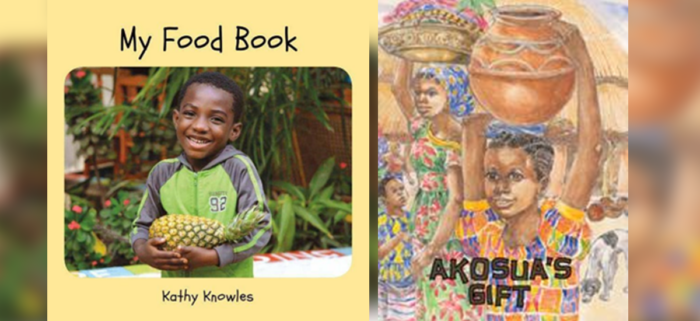
Muna Kalati: How do you arrive at the subject matter and plot for your books?
Kathy Knowles: Many of my books are African-focused concept books. In these books I match my photos with simple text that I think Ghanaian children will be able to relate to and appreciate, such as an alphabet and counting book. Recently I wrote Mimi’s Purse, a story inspired by my late grandmother Mimi.
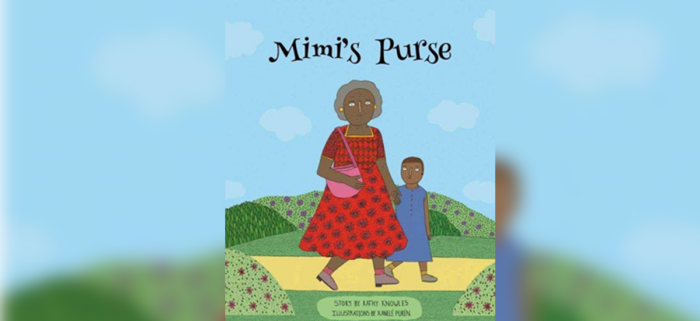
Muna Kalati: What made you start setting up libraries for children in Ghana? And how did you sustain your motivation all these years?
Kathy Knowles: For several years I lived in Ghana with my family. Local neighbourhood children took an interest in the books we had, and the library idea soon followed. The initial library was only a basket of books with six eager readers under a tree. Last year our libraries (nine free-standing libraries and 6 mini-libraires) received 360,354 visits.
OLF’s hardworking librarians are doing their best to create nurturing environments where Sharing the Joy of Reading, our mission statement, is forefront. My role is to support their efforts.
It is not always easy. Staff salaries are the responsibility of local municipalities. Often their salaries are late by many months, and we have to fight on their behalf.

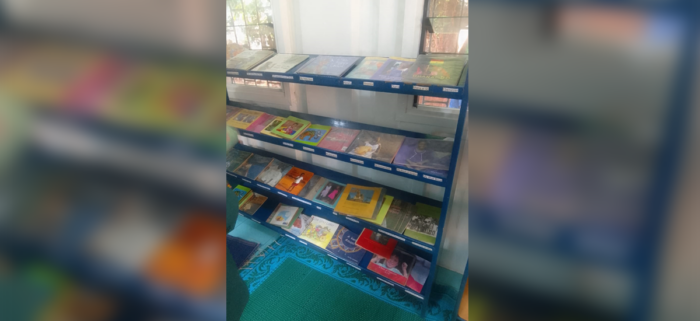
Muna Kalati: In your opinion, what is the significance of motivating children to enjoy reading?
Kathy Knowles: I believe that children seldom develop the joy of reading on their own. One has to bring ‘books alive’ one at a time.
Often parents will tell you that they don’t have the luxury of time to read to their children. Of course in some cases they don’t have the literacy skills to do so. Teachers tend to focus on the curriculum. Librarians fill this gap. This to me defines their crucial role.
Muna Kalati: What are some of the unforgettable moments or experiences you have had in your quest to promote literacy among children?
Kathy Knowles: In the year 2000, I did a reading study with close to 200 pupils attending government schools in Accra. This included assessing their reading skills at the beginning and the conclusion of the study. The pupils who improved the most were those whose teachers read aloud to them daily and who had opportunities to read quietly themselves. The teachers told me that the books they read aloud were the most sought after books. This validated my understanding of the importance of reading aloud, a cornerstone for all our libraries.
Muna Kalati: Can you share some of the challenges you have encountered in setting up libraries in Ghana?
My biggest challenge has always been getting the full support of municipalities and assemblies. They don’t perceive libraries as valued community institutions. Salaries are woefully low and don’t keep up with inflation.
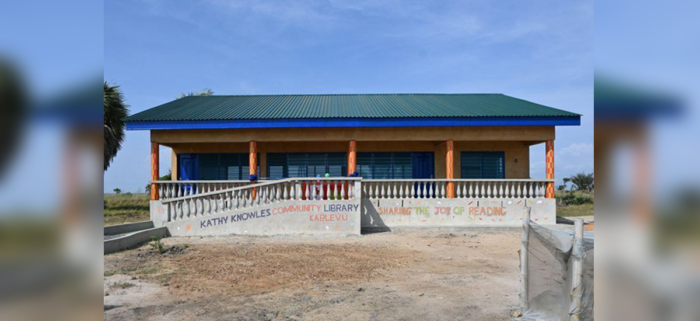
Muna Kalati: How can social entrepreneurs aspiring to promote children’s literacy circumvent such challenges?
Kathy Knowles: Librarians and their libraries need encouragement. What about an “Adopt a Library” approach where financial support is given, encouragement is offered, and perhaps there might be opportunities for social entrepreneurs to volunteer.
Muna Kalati: You mentioned a training programme for those interested in setting up children’s libraries and literacy projects; how many people have you trained so far?
Kathy Knowles: This is difficult to answer because we have trained lay librarians for more than 25 years. I would guess that we have trained at least 100 librarians.
Muna Kalati: In your opinion, what is the ultimate role of libraries in our society and how can libraries make further progress or improvement in service delivery down the line?
Kathy Knowles: I believe that libraries are community hubs, which bring people of all ages together to learn and interact with each other and the broader world. Libraries need to change with the times and according to their own communities.
The library’s financial resources will partially dictate their restraints. For example, two of our libraries in the Greater Accra region have stages with auditoriums that foster daily performance opportunities for Ghana’s youth and offer spaces for community events and workshops. This requires skilled personnel and funding along with the capital resources at the time of construction. One of our libraries has WIFI, a wonderful service that comes with a cost. Fortunately this has been generously donated.
Muna Kalati: Finally, what vision do you have for the future of libraries in Africa?
Kathy Knowles: My vision is that libraries across the African continent will nurture children’s thirst for knowledge and create opportunities to foster their self-esteem and talents. Although I cannot speak beyond Ghana’s borders, from my experience, community libraries will only flourish if governments at all levels recognize their important roles.
